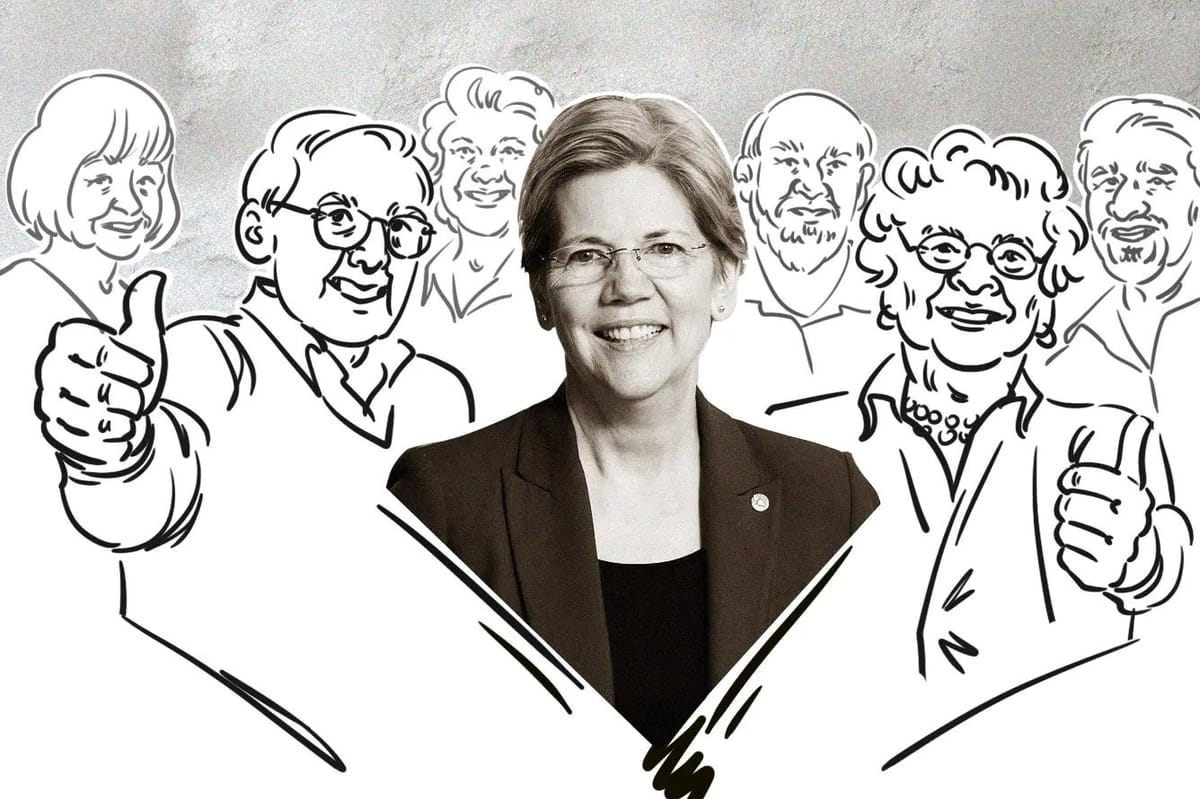
Although ties between cryptocurrency and terrorism funding are becoming increasingly hard to demonstrate, U.S. state Senator Elizabeth Warren is not giving up on her anti-crypto crusade. This week, the former presidential candidate sent a letter to crypto advocacy groups expressing her concerns about an alleged employment 'revolving door' between the government and companies in the field.
However, while she might have plenty of drive to keep fighting against the industry, she might soon find that her support from voters is lacking.
In 2024, 44% of voters in the U.S. elections will be from the Millennial and Gen-Z generations.
The new generation of voters that will elect both the president and senate members is, according to a survey conducted by The Harris Poll on behalf of Grayscale, really into crypto.
About 31% to 35% of U.S. citizens aged 18 to 42 own cryptocurrency, over half believe that decentralized currencies and blockchain are the future of finance, and the vast majority (68%) would likely own crypto if more straightforward regulations were in place.
Inflation and the excessive income disparity in the U.S. are key factors leading younger generations towards crypto and alternative means of earning money.
But there is more than Gen-Z and Millennials financial situation that might injure Senator Warren's political career. According to Grayscale, this is a "demographic that has grown to be particularly distrusting of institutions while simultaneously concerned with their financial future."
Established organisations that constitute the core of the United States, such as the government, news media, and financial institutions, are no longer beacons of reliability but targets for memes, hatred, and severe distrust.
Senator Warren's insistence on citing terrorism financing as her justification for implementing draconian banking laws on the industry, despite investigations suggesting that less than 0.2% of crypto is being used for illicit activities is further hindering her credibility.
It is also not a particularly good look that in her ferocious fight against crime financing channels, she has relied on the American Bankers Association for help. While drawing up the anti-crypto bill with Senator Roger Marshal, she partnered with institutions such as JPMorgan, which ironically is one of the world's most heavily fined institutions for facilitating criminal funding.
As it seems that the former-presidential candidate is not just anti-crypto, but actively pro the traditional financial sector (which has been fundamental to the detrimental economic conditions of the younger cohort of 2024 voters) keeping their monopoly on the financial industry, her position as a progressive Democrat Senator who works "for the people" is even further weakened.
As Coinbase CEO Brian Armstrong recently stated, "Being anti-crypto is a really bad political strategy going into 2024." We will wait to Observe whether Warren continues in her role as Senator into 2025.

